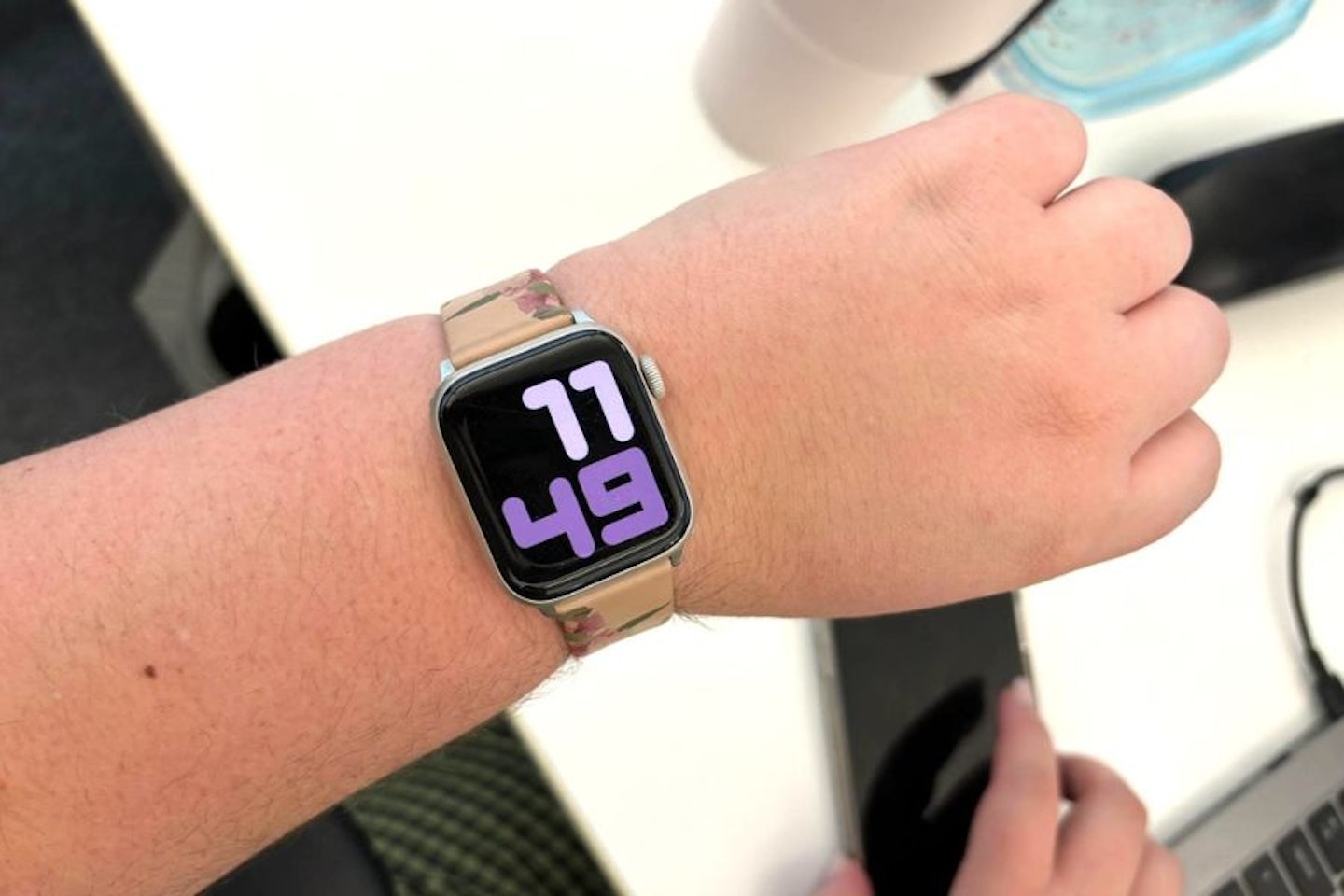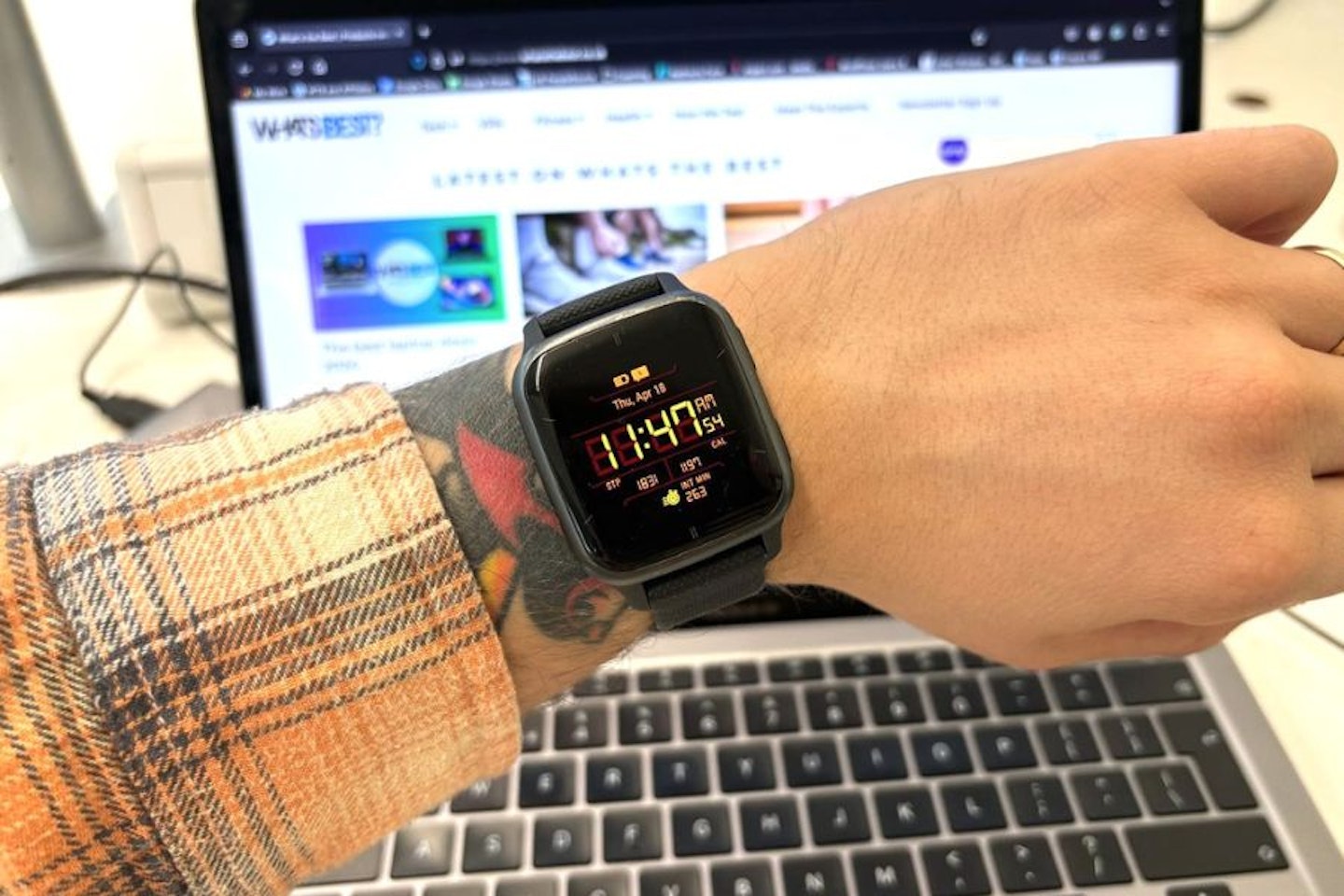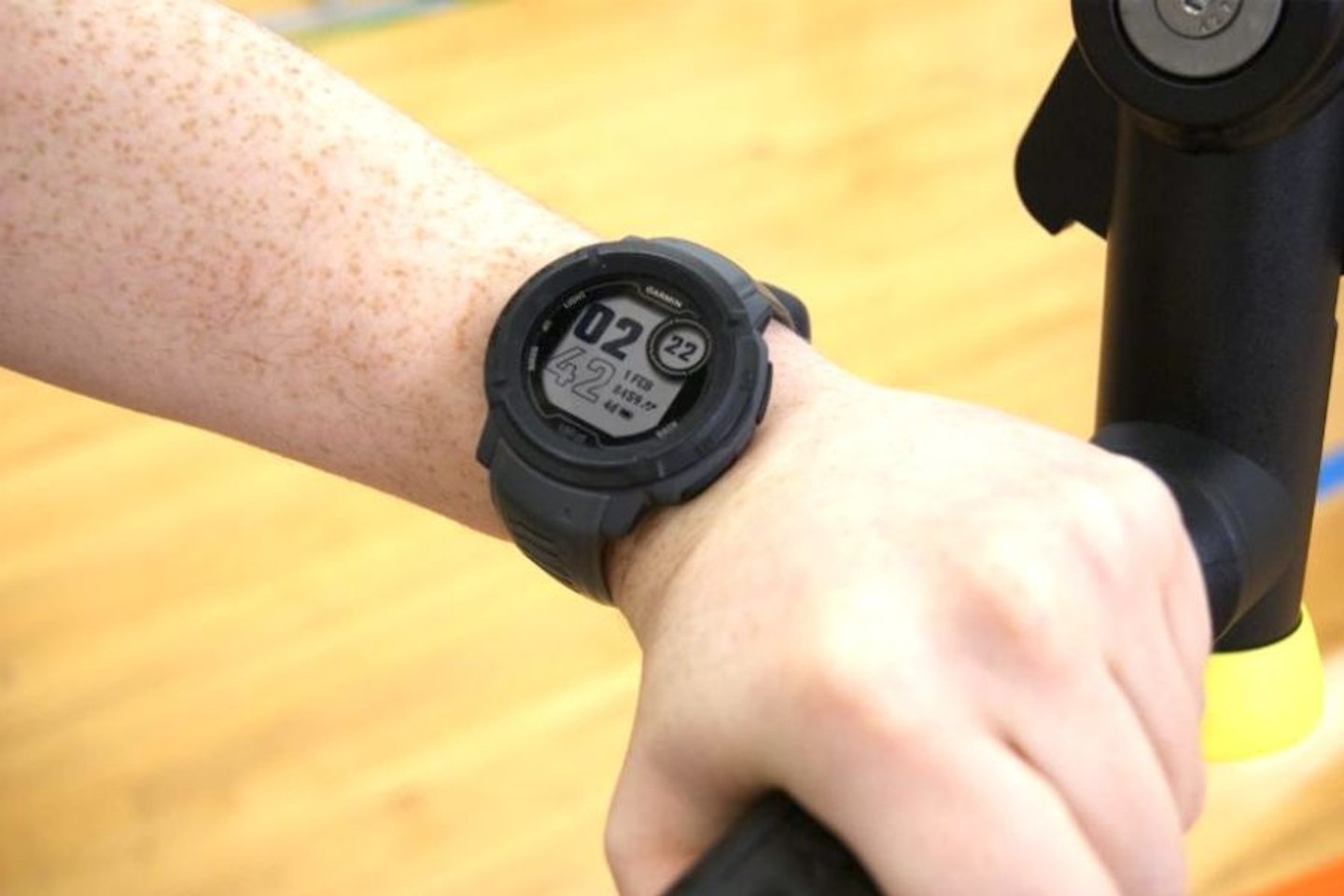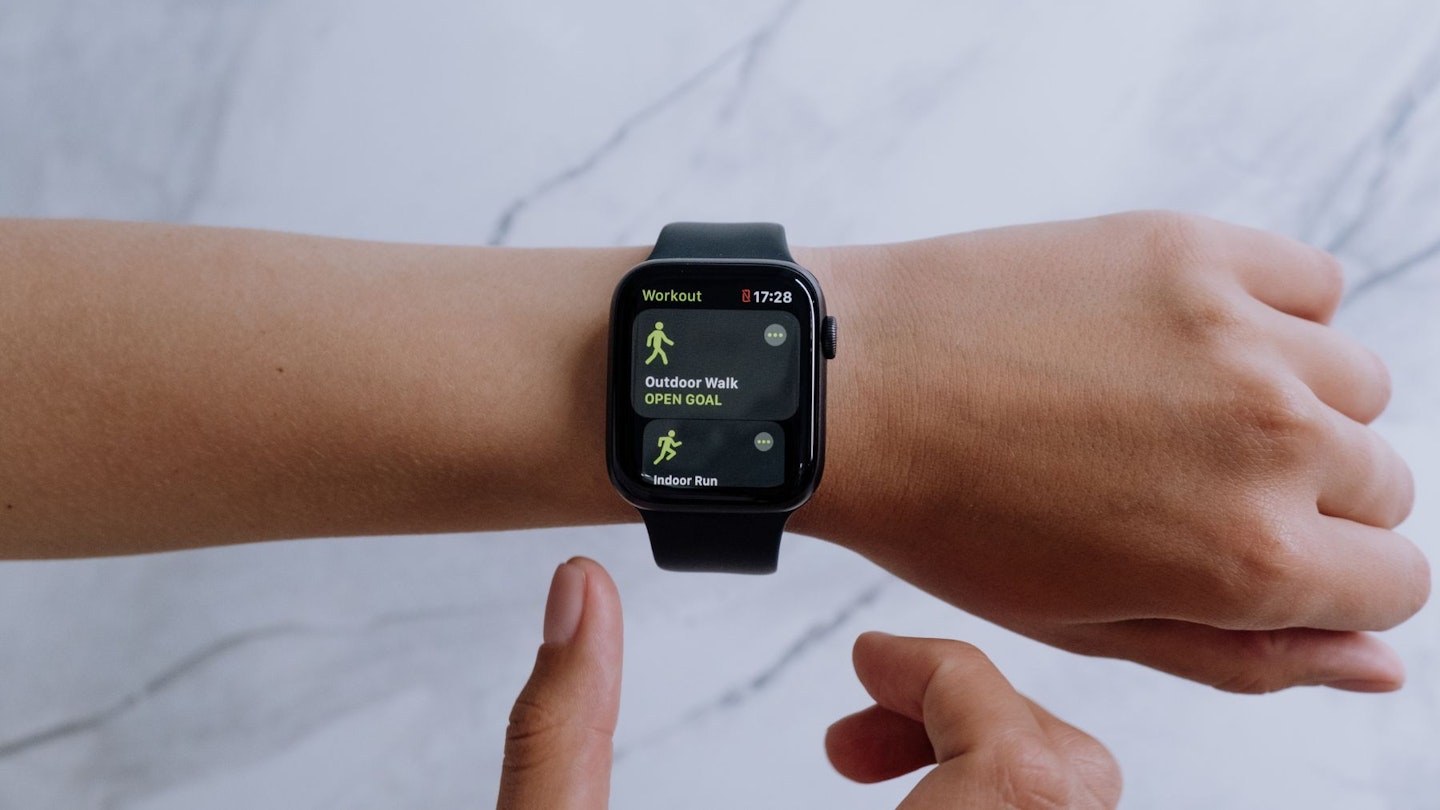While there is some overlap between the best smartwatches and the best fitness trackers, it can be tricky to decide which one is going to be most suitable for you. Do you, for example, need or want smartwatch notifications? How important is the battery life to you? What’s your budget?
Modern smartwatches and fitness trackers make tracking your fitness easier and can be a great way to stay motivated. As these devices have advanced, so has their popularity. These devices can do much more than a basic pedometer – heart rate, blood oxygen levels, stress, and menstrual cycle tracking are just a few examples of what these wearable technologies can offer.
There’s plenty to think about when choosing between these devices. With our help, you’ll soon be ready to figure out which option best meets your needs.
What is a smartwatch?

A smartwatch typically looks like a traditional watch, with a round or square display that will usually be sized between 40mm and 45mm. There’s plenty of variety in terms of design, too; some are very rugged, while others are much more fashion-conscious.
Smartwatches offer as many health and fitness tracking features as any fitness tracker. What really separates them is all the extra tools that they offer – apps, contactless payment, and music playback, to give a few examples. Some even allow you to make and receive calls on your wrist without needing to pick up your phone.
What is a fitness tracker?

Fitness trackers, as the name suggests, almost exclusively track your fitness. They do this by monitoring several key health metrics, such as step count, heart rate, and sleep quality. Fitness trackers also tend to be smaller and lighter than a smartwatch, with a lozenge or pill-shaped design, and a screen for displaying information.
Features
As the technology has advanced, the features available on these devices has grown. Fitness trackers now offer a wide range of metrics to monitor your health and fitness, including heart rate, sleep, blood oxygen, stress, menstrual cycle tracking, calorie burn estimates and sports tracking.
Smartwatches will often also measure all these metrics, plus others. The Samsung Galaxy Watch 5 series, for example, can also provide blood pressure measurements, while the Apple Watch Series 9 can deliver an ECG (electrocardiogram), fall detection, noise tracking (where it warns you of excessive noise that could damage your hearing) and more. As a rule of thumb, you can probably expect to see it on a smartwatch if it's available on a fitness tracker.
Most smartwatches will have some form of built-in GPS, allowing more accurate tracking if you’re out on a bike ride or run. Some fitness trackers, such as the Fitbit Charge 5, also offer this. But many rely on connected GPS, meaning your phone must provide the GPS data via Bluetooth. This is inevitably less precise, plus you’ll have to take your phone with you.
Battery life
When it comes to comparing battery life, the situation is a bit like an early Facebook relationship status – complicated. But there are some general principles. Fitness trackers, despite being much smaller, tend to have better battery life overall. This is because they have smaller displays which require less energy, and have fewer apps and other functions that can also drain battery. Usually, you should expect a fitness tracker to provide a minimum of five days battery, and some may stretch to a couple of weeks between charges.
Most smartwatches, in comparison, will get you two days at best. The Apple Watch Series 9 struggles to go longer than a day between charges. You might be able to eke out 48 hours if you’re particularly frugal with it. It’s a similar story with the Google Pixel Watch 2 or the Samsung Galaxy Watch 6. But there are a few exceptions. The Apple Watch Ultra can last for around three days between charges, while some Garmin watches can last for well over a week.
As always, battery life will differ depending on how you use it. If you turn on GPS tracking, for example, this will deplete your battery faster. When it comes to charging, the smaller battery on a fitness tracker means they will generally charge more quickly than a smartwatch.
Water resistance
Most modern smartwatches and fitness trackers are water-resistant and will be fine for a dip in your local pool. A few smartwatches, such as the Apple Watch Ultra, can withstand deeper water and are suitable for scuba diving to 40 metres and high-speed water sports (which most smartwatches and fitness trackers can’t really cope with).
Smart notifications
Smartwatches offer far more connectivity than any fitness tracker. While most fitness trackers will alert you to notifications on your phone, this is often extremely limited. The smaller screens make it harder to read any messages or app notifications, and, while a few fitness trackers allow you to send a limited range of replies to texts or missed calls, this is quite basic.
Smartwatches will allow you to read and respond to messages, and some will let you make and receive calls through your watch. This can be via Bluetooth, or in some cases where the smartwatch has its own cellular connection (usually with an eSIM that requires its own subscription), you don’t even need your phone close to hand.
App compatibility
In terms of apps, there is only one winner. Smartwatches offer a wide range of apps to enhance the user experience, while fitness trackers don’t allow users to add any additional apps or features beyond what’s already on them. If you want your wristwear to do more than track your fitness, you’ll almost certainly need a smartwatch.

Pros and Cons
There are pros and cons for both types of activity trackers.
Fitness tracker pros
•Price: A key advantage of fitness trackers is that they tend to be much cheaper than a smartwatch. A premium device such as the Fitbit Charge 6 will typically cost less than £140, while some of the best budget fitness trackers are available for under £50.
• Simplicity: Fitness trackers typically have fewer features than smartwatches, which makes them much simpler to use. You don’t need to worry about different apps and how to make them work.
• We’ve mentioned battery before, but if you don’t want to worry about charging your device every day or two, a fitness tracker may be more suitable.
Cons:
• Display: Fitness trackers are smaller than smartwatches, which means that they also have smaller screens. While this is great for battery life, it can make them harder to read, and slightly more fiddly to use, especially if they rely on a touch screen for navigation.
• No apps: While for some, a fitness tracker's simplicity is a plus, for others, the lack of extra functions will be a drawback. Fitness trackers focus on one thing – tracking your health and fitness metrics. But they won’t give you the extra apps and connectivity that you’ll find on a decent smartwatch.
Smartwatch pros:
• Features: Smartwatches have more features than a fitness tracker offers. Music playback, apps, and superior connectivity, among other things, make smartwatches a far more multipurpose tool. Several models even offer voice assistants, such as Siri and Google Assistant. They usually offer similar health and fitness tracking metrics to those on a dedicated fitness tracker.
• Design and customisation: Smartwatches tend to offer a wider variety of styles and customisation options. Rugged designs, sports watches, and fashion watches are all available to choose from, alongside the ability to change your watch strap. The design also means larger displays that are typically brighter and much easier to read.
Cons:
•Price: Smartwatches offer more features than fitness trackers, but that comes at a cost. Usually, a quality smartwatch will cost more than a fitness tracker. While some smartwatches cost less than £50, these tend to be from obscure brands and are more like a fitness tracker than a “true” smartwatch. There’s a wide range in smartwatch pricing, but you’d expect a decent wearable to cost between £150 for something like a Fitbit Versa 4 and as much as £799 for an Apple Watch Ultra 2, with plenty in between.
• Battery: As we highlighted earlier, battery life on many smartwatches is a major hindrance. The display, plus all those apps and added functions, is a major drain on the battery. If you use the watch a lot, or are simply bad at remembering to charge it, you could easily run out of juice halfway through a bike ride or gym session.
Who should buy a smartwatch?
If you want to track your health and fitness but fancy a few extra features, then a smartwatch is the way to go. The added apps and connectivity features mean you don’t always need to have your phone close to hand, while music playback options mean you can go for a run or visit the gym without needing your phone at all.
Who should buy a fitness tracker?
If all you want is a device to track your activity levels and motivate you, a good fitness tracker will provide everything you need. These wearables offer most of the features you could want while being a little lighter on your wallet. And if you’re not sure if tracking these numbers is going to be helpful, a fitness tracker is a cheaper way to test the waters.
Choosing the right device for you
So, you know you want a new wearable, but how exactly do you decide whether to buy a smartwatch or fitness tracker? And once you’ve decided, what are they key things you should think about before choosing a specific device?
When trying to decide which wearable technology to choose, we’d suggest the following:
• What features matter to you? Do you, for example, want or need the added apps and connectivity of a smartwatch? Or is health and fitness tracking all you’re interested in? If it is health and fitness, do you need to measure heart-rate variability or blood oxygen levels? Will this be useful, or will it be information you don’t need?
• Decide on your budget. Smartwatches are generally more expensive, so if you want to keep costs down, a fitness tracker is usually more affordable.
• Consider how it looks and feels. For some, a replacement for a traditional wristwatch might be preferable. For others, a watch might feel too bulky, and a smaller, lighter fitness tracker may be more comfortable on slim wrists.
• You’ll also want to think about the app that supports the device you’re considering. Every smartwatch and fitness tracker has an app to show you all your data. But some apps are more intuitive than others, and some come with features hidden behind a subscription. It’s worth investigating how the apps look and feel, to see if you will get on with them.
• Finally, it’s essential that you consider what devices you already own, and how your new smartwatch or fitness tracker will fit into that ecosystem. For instance, if you own one of the best Android smartphones, there’s no point in considering an Apple Watch, as Apple Watches don’t work with Android devices. Many other brands, such as Fitbit, Garmin and Xiaomi, are compatible with both Android and iOS phones. But it’s essential to check before making a purchase.
Conclusion
There’s plenty of overlap between smartwatches and fitness trackers. However, there are also enough differences to make them appeal to slightly different audiences. Fitness trackers (in general) are cheaper, offer fewer features, and have better battery life. Smartwatches, meanwhile, can do everything you’d expect to see in a fitness tracker, plus lots of other things.
Which one is right for you will come down to your individual circumstances, and your preferences in terms of cost, features, and design. We are recommending looking for whichever device is most likely to stay on your wrist rather than gathering dust at the back of a drawer after a few weeks.
Steven Shaw is a senior tech product writer at What's the Best, with a keen interest in smart tech and wearables.
Subscribe to the What’s The Best Newsletter to keep up to date with more of the latest reviews and recommendations from the What’s The Best team.
